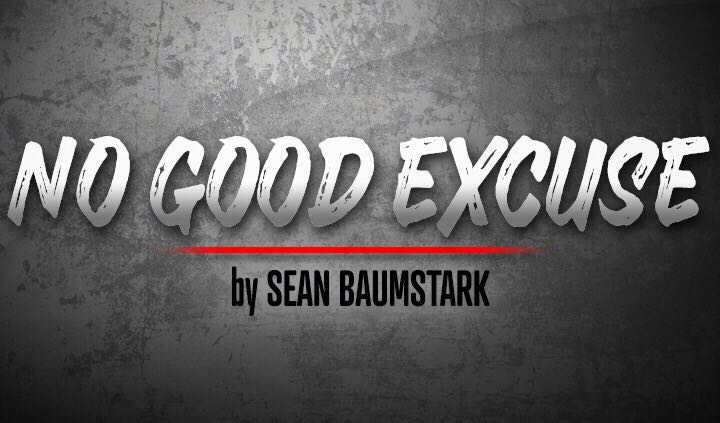My Planning Approach Allows Me to Prioritize My Health Needs

I was sitting on a plane yesterday thinking about some of my deadlines when I recognized that I was feeling overwhelmed and exhausted. While I wasn’t frustrated and my level of functioning wasn’t affected, I noticed that I was tired and feeling as if time was getting away from me.
As I’ve mentioned before, when I think about what to write for this column, I reflect on my everyday experiences and apply a filter. I ask myself, “What’s the ‘no good excuse’ here?” or “What can I write about this experience that might be valuable to readers?”
My nagging fear is that the column’s title and my writing style could mislead a reader that I never make excuses or my days are easy because I’ve mastered the skill of getting as much done as possible.
Of course, I want my days to be straightforward and productive. This column helps to hold me accountable to living each day with purpose, and it challenges me to avoid excuses.
As the plane pushed away from the gate, I reflected on how vital planning is to avoid exhaustion. I also realized I had abandoned my weekly plan and resolved to revisit my approach with careful intent the following week.
Using my internal filter for this column, I thought I’d share my approach to planning. Perhaps you will find the following tips helpful.
Plan around your ideal endpoint
If I’m starting work at 8 a.m., I identify that I need to leave my house at 7:30 to arrive on time. I plan one hour to get ready in the morning. I try to get more than seven hours of sleep each night, so I set my alarm for 6:30 a.m. Now I can easily calculate my bedtime: before 11:30 p.m. At this point, I can select my “free” time and fill that space with what is most important to me.
If I’m not strict about my bedtime, it becomes a moving target. I’ll go to bed when I “feel like it,” which will lead to starting my day with a rest deficit.
Plan around your priorities
Priorities are different than nonnegotiables; the latter are essential but also tend to be automatic. If you have a job, of course, you’re going to show up. The same is true — mostly — for school. The “priorities” I’m referring to are those things that you deem important, but if you don’t complete them there are no immediate consequences.
For example: exercising, journaling, reading, getting a haircut or a massage, or connecting with friends. Once you’ve identified what’s important to you, you can easily plan time for these activities while working around your need for rest and nonnegotiables.
Plan for changes
You may not have allocated a time slot in your planner for changes. But allowing space in your schedule permits you to readjust as your week progresses. Your priorities may be affected by alterations, but remember your nonnegotiables and need for rest when things get crazy or off-track. Showing up to my job well-rested so that I can be fully functional is more important than hitting the gym or watching the season finale of “The Bachelorette.”
I find these planning practices helpful when I’m approaching a particularly busy week. Even if I don’t execute the plan 100 percent, I still tend to arrive at the end of my week with a sense of accomplishment and satisfaction.
Evaluate and adjust your plan
Our priorities, and even our nonnegotiables, will change over time. Our abilities and overall health needs will evolve, too. I encourage routine and consistent evaluations of your performance to figure out what worked and what didn’t. Identify what helped you to get sufficient rest and accomplish priorities, and what had you sidetracked.
Planning is helpful but useless without execution. Execution may be futile if not continually evaluated.
Some days will be harder than others and some weeks busier, but with intent, you can plan successfully.
Do you have tips for planning your days or weeks? Perhaps you can share how you balance the complexities of your daily health needs with your other priorities? Please tell me what works for you in the comments below.
***
Friedreich’s Ataxia News is strictly a news and information website about the disease. It does not provide medical advice, diagnosis or treatment. This content is not intended to be a substitute for professional medical advice, diagnosis, or treatment. Always seek the advice of your physician or another qualified health provider with any questions you may have regarding a medical condition. Never disregard professional medical advice or delay in seeking it because of something you have read on this website.






Leave a comment
Fill in the required fields to post. Your email address will not be published.